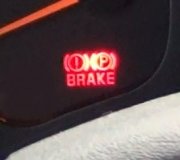The best suspect is a constricted front rubber flex hose. To prove this, next time this happens, stop on a slight incline, place a block about a foot downhill of a tire so you don't look funny chasing after the vehicle, shift to "neutral", then reach behind the front wheel and open the bleeder screw for the caliper that's getting hot. If that lets the brake release, that proves pressurized brake fluid was trapped and unable to release back into the reservoir.
The next step is to open the hydraulic circuit at various places to figure out where the fluid is being blocked. Probably the easiest place to get to is the line coming right off the master cylinder. If the sticking brake releases when you loosen that line, the fix is going to be very expensive, possibly more than the car is worth. For the master cylinder to not let the brake fluid return, the rubber lip seals would have to be grown and mushy due to the fluid is contaminated with a petroleum product such as engine oil, transmission fluid, power steering fluid, or wheel bearing grease.
Your comment about greasing the wheel cylinders makes me nervous. I hope you mean you greased the six "lands" the shoes ride on, on the backing plate. I assume you didn't mean you put grease inside where it can contact the brake fluid. If any petroleum product got into the brake fluid, the only proper repair for that is to remove all the parts that contain rubber parts, flush and dry the steel lines, then install all new parts and brake fluid. That gets to be a very expensive repair, and even worse if the car has anti-lock brakes as the hydraulic controller with its rubber seals and o-rings has to be replaced too. If any rubber part is not replaced, the contamination will leach out of it and recontaminate the new brake fluid. Many years ago we could even cause this problem by repacking front wheel bearings by hand, then wiping our hands on a clean shop rag, then we'd pop the rubber bladder seal back into the reservoir cap when topping off the brake fluid. That little grease residue on our fingertips was enough to contaminate the brake fluid.
Hopefully you'll find the sticking brake doesn't release when you open the line at the master cylinder. That proves the restriction is further down the line. This is where the rubber flex hose is the best suspect. Chrysler's design uses a metal mounting bracket that's wrapped around the hose in the middle. Over time, rust builds up inside that crimp, and that constricts the hose. Brake fluid is hard to push through that restriction, so the brake pedal is high and hard, and the fluid can't release, causing the dragging brake. That crimped bracket can easily be opened up with a large flat-blade screwdriver or with a large channel-lock pliers. This photo shows Toyota's front brake hose and the arrow is pointing to the bracket where the rust gets underneath to squeeze the hose. This design doesn't have a means of opening it up, so the hose has to be replaced. If you're going to replace it, loosen the hose from the steel line first, then you'll see the brake is still sticking. That will be proof the restriction is in that hose.
Image (Click to make bigger)
Monday, March 29th, 2021 AT 11:15 AM



